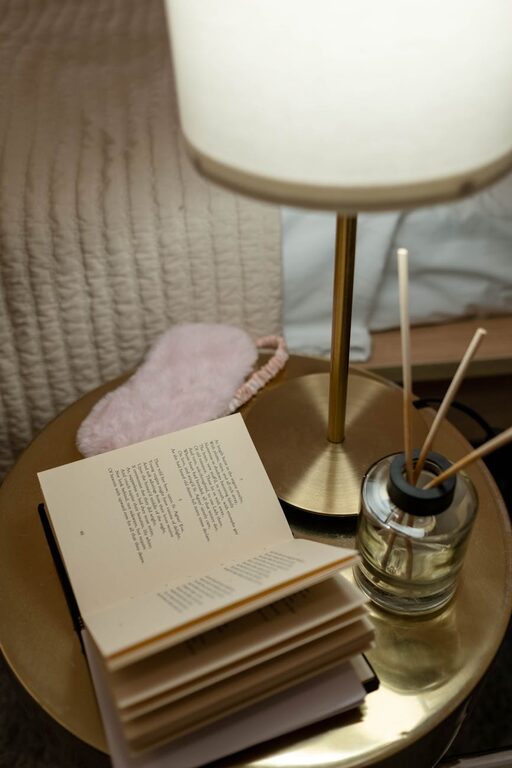How to Create a Relaxing Bedtime Routine for Better Sleep

A relaxing bedtime routine can make a big difference in how well you sleep and how refreshed you feel the next day. In today’s fast-paced world, it’s easy to fall into habits that interfere with restful sleep, like staying on screens too late or rushing through the evening. By taking a little time each night to unwind intentionally, you can improve your sleep quality, reduce stress, and wake up feeling more energized.
This guide will help you create a calming bedtime routine tailored to your lifestyle. Whether you’re new to evening rituals or looking to upgrade your current routine, these tips can help you relax and prepare your body and mind for sleep.
Why a Bedtime Routine Matters
Our bodies have natural rhythms known as the circadian cycle, which influence sleep patterns. A consistent routine helps signal to your brain that it’s time to wind down, making it easier to fall asleep and stay asleep.
Some benefits of a relaxing bedtime routine include:
– Reduced stress and anxiety at night
– Easier transition to sleep
– Improved overall sleep quality
– Better mood and energy the next day
Step 1: Set a Consistent Bedtime
One of the most important parts of a bedtime routine is going to bed at the same time each night—even on weekends. Consistency helps regulate your internal clock.
Tips to set a bedtime:
– Choose a realistic time based on when you need to wake up
– Aim for 7–9 hours of sleep per night
– Avoid staying up “just a little longer” on busy days
Step 2: Create a Wind-Down Period (30–60 minutes)
Before you actually get into bed, spend some time doing calming activities to signal your body to relax.
Activities to try during wind-down time:
– Reading a physical book: Avoid screens to prevent exposure to blue light
– Listening to soothing music: Soft instrumentals can help calm the mind
– Gentle stretching or yoga: Releases tension from the body
– Meditation or deep breathing: Focuses your mind and reduces stress
– Taking a warm bath: The drop in body temperature afterward can promote sleepiness
Avoid stimulating activities like intense exercise, work, or engaging social media during this time.
Step 3: Limit Screen Time and Blue Light Exposure
Electronic devices emit blue light, which can interfere with the production of melatonin—a hormone that helps regulate sleep.
How to reduce screen impact:
– Turn off screens at least 30–60 minutes before bedtime
– Use “night mode” or blue light filters if you must use devices
– Consider reading a book or journaling with pen and paper instead
Step 4: Create a Comfortable Sleep Environment
Your bedroom should be a restful sanctuary that encourages relaxation.
Tips for optimizing your sleep space:
– Keep the room cool (around 65°F or 18°C is ideal)
– Use blackout curtains or a sleep mask to block out light
– Reduce noise with earplugs, white noise machines, or fans
– Invest in a comfortable mattress and pillows
– Keep the room clutter-free and tidy
Step 5: Avoid Eating and Drinking Right Before Bed
Heavy meals and caffeine late in the evening can disrupt your sleep. Try to avoid large dinners less than two hours before bedtime. Also, limit caffeine intake in the afternoon and evening.
If you’re thirsty at night, opt for a small glass of water. Avoid alcohol as it can interrupt sleep cycles.
Step 6: Practice Gratitude or Journaling
Spending a few minutes reflecting on positive moments or writing down your thoughts can help clear your mind before bed. This practice can reduce worry and improve sleep quality.
– Write three things you’re grateful for
– Note any thoughts or plans so they don’t keep you awake
– Use a simple journal or notebook
Step 7: Be Patient and Adjust as Needed
Creating a relaxing bedtime routine takes time and consistency. It may take a few weeks before your body fully adapts. Keep track of what works best and make changes to tailor your routine.
Sample Relaxing Bedtime Routine
- 8:30 PM – Turn off screens and start dimming lights
- 8:45 PM – Take a warm bath or stretch gently
- 9:00 PM – Read a book or listen to calming music
- 9:20 PM – Write in your gratitude journal
- 9:30 PM – Practice deep breathing or meditation
- 9:45 PM – Get into bed, lights off
—
By creating a mindful and calming evening routine, you give your body a gentle cue to prepare for rest. Small changes like these can have long-lasting effects on your sleep quality and overall well-being. Sweet dreams!




